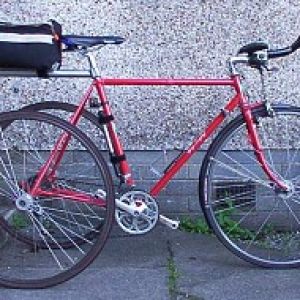Silage Making.
Back on the ninth of April I blipped the spreading of slurry on this field. Now we're onto the next stage of the process, turning the resulting grass into silage. In a few months time, the cows will start turning it back into slurry again, and so the cycle will continue until scientists work out a more efficient method of running the process.
In my youth, grass was turned into hay by drying it, then it was realized that fermentation reduced the need for good weather. You can read all about it on Wikipedia (something I started to do until I noticed how late it was getting) it's a bit like fermenting milk to turn it into cheese to reduce the need for refrigeration.
This evening, when the weather brightened up, I went to check on my Schrodinger bees; they've been either dead or alive for the last six weeks but I haven't been able to ascertain which, first because of the poor weather and then later because I was away. I only had two colonies last autumn and, today, I discovered that one of them had succumbed to the cold spring. I've done better than most as, this winter, survival rate is reported to have been about 30%.
It is common for colonies to die just when you think that they have made it. This happens because there are old and tired bees trying to raise young vigorous brood early in the year so that they're ready to work the nectar flow from the spring blossom. If the auld yins die off faster than the youngsters emerge then there are problems.
Life is balanced on a knife edge.

Comments
Sign in or get an account to comment.


